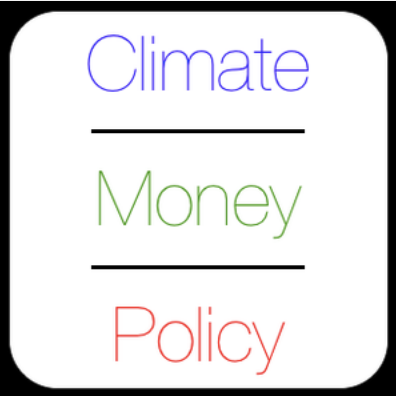ISIS, Henry Ford, and Sustainability
/Recent news from the Middle East tells us that the Islamic State (or ISIS or ISIL as you choose) is the most well funded insurgency in history. Reports from CNN, NBC, the BBC all peg the largest part of the group's funding to oil sales. Some 7,000-10,000 barrels/day are sourced at Islamic State controlled wells. Even after steep black market and smuggling costs it's estimated that between $1.5-$2M in revenue comes in to the group every day as a result. This means that somewhere a host of traders and middle men are working hard to blend that oil into your supply chain unnoticed. When you ask, "Who's to blame for this and what do I do?" the answer is simple: Look to Henry Ford on both questions.
Today we're taking a look at the genius of Henry Ford, the sad mistakes Ford Motor would later make and how the abandoned support for the market created echoes which ring out to the Islamic State today. How do these things connect? Read on...
Part 1:Attention to Detail
Before, Ford & the Model T, cars were luxuries. Extreme luxuries. Each one a hand-crafted masterpiece that required stunning hours to manufacture and each carrying a price that matched. That all changed with the advent of the moving assembly line and vertical integration. At it's height, Ford made everything that went into its cars. They made the glass. (Do you have any idea how hard it is to make glass? It's hard.) They raised the cows that would become the leather, built a power plant for their electricity and had over 100 miles of railroad tracks in the facility for moving materials. This brought down costs so far and raised quality so high that ford was able to build cars in 93 minutes and make a handsome profit despite a unit price equal to $21,000 in 2014 dollars.
Although Ford did this to make sure that his supply chain could deliver exactly what he wanted, exactly when he wanted it, there was another impact no one would properly value at the time. Ford created a completely transparent sourcing operation. He never had to ask where something came from because he made it all. In his time this wasn't an issue. Today though, conflict minerals, sweatshop labor, and the ethics of certain source-countries are at play. Buying decisions and investor valuations the world over teeter on the potential for a PR nightmare started 12,000 miles away and totally out of a company's control. Lots of organizations wish they had the kind of control Ford once had.
Part 2: Cost vs. Clarity
Unfortunately, even Henry Ford couldn't get every part of it's operation to scale. Costs are better controlled by individual businesses than from a central source asking for windshields. Thousands of companies emerged. Cost containment was pushed upstream. This is a good thing in general but it comes at the cost of transparency and engenders an apathy for the process of your partners. For most companies, and most of the following century, this wasn't an issue. In aggregate however, it creates a tremendous problem. Suddenly, no one is responsible for the holistic outcome. Externalities flourish. Then one day you wake up and have to wonder if your needs are funding conflicts in Iraq, genocide in Congo or global warming. Sometimes it's even worse. Sometimes you know they are.
Let's be clear. Capital can and should be directed to the service provider who delivers the highest quality but in the 21st century the process of providing that service is part of what a company offers to it's customers and investors. The global risks of climate, political instability, labor issues and finance are as much a part of the buying process as the main function of a good or service. Over the last hundred years companies have endorsed a system that obfuscates those intangibles.
Part 3: It all goes wrong... it can all go right.
So we know that the de-centralization of business is part of a process that allows a criminal organization to sell $700 million in stolen oil annually. There's no reason it needs to remain that way. There are hopeful signs that the business and investment communities are beginning to demand more. More data. More transparency. More security. All that means that the spirit of Henry Ford does live on in a new form. The days of the fully vertically integrated company are gone and won't be returning. In their place, today's wise manager realizes that relying on partner companies also comes with an oversight responsibility.
Sustainability is about far more than carbon emissions or water usage or human rights. Those are certainly critical issues and keystones of a good sustainability process, but sustainability is more fundamental than that. It's about gaining clarity on what it takes to make your organization possible and taking steps to make sure that all of your processes enhance your ability to continue operations in the future. Somewhere in your business model you rely on clean air and clean water. Somewhere you rely on fair consistent governance. Somewhere you rely on growth of the marketplace.
The Islamic State, like any group of thugs with power, threaten, extort and kill those they claim to service. Those aren't the actions you take to build something. Henry Ford built cars and raised wages for his workforce because he knew that to flourish his employees needed to be able to afford his car.
Related Story: The Sentence That Will Define Your Sustainability Program
Thanks for sharing. Please leave a comment.


